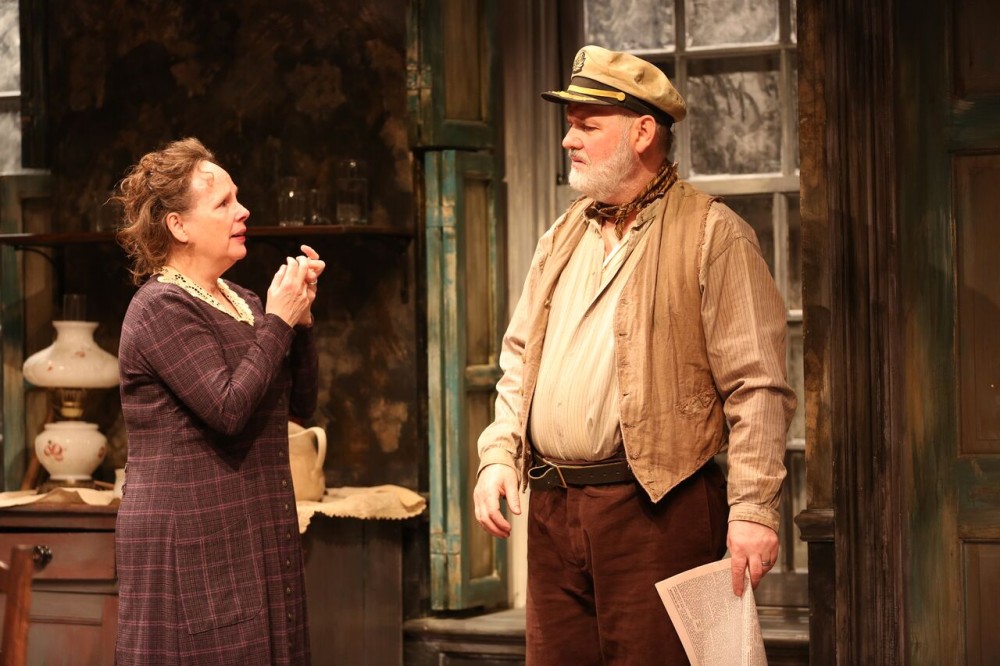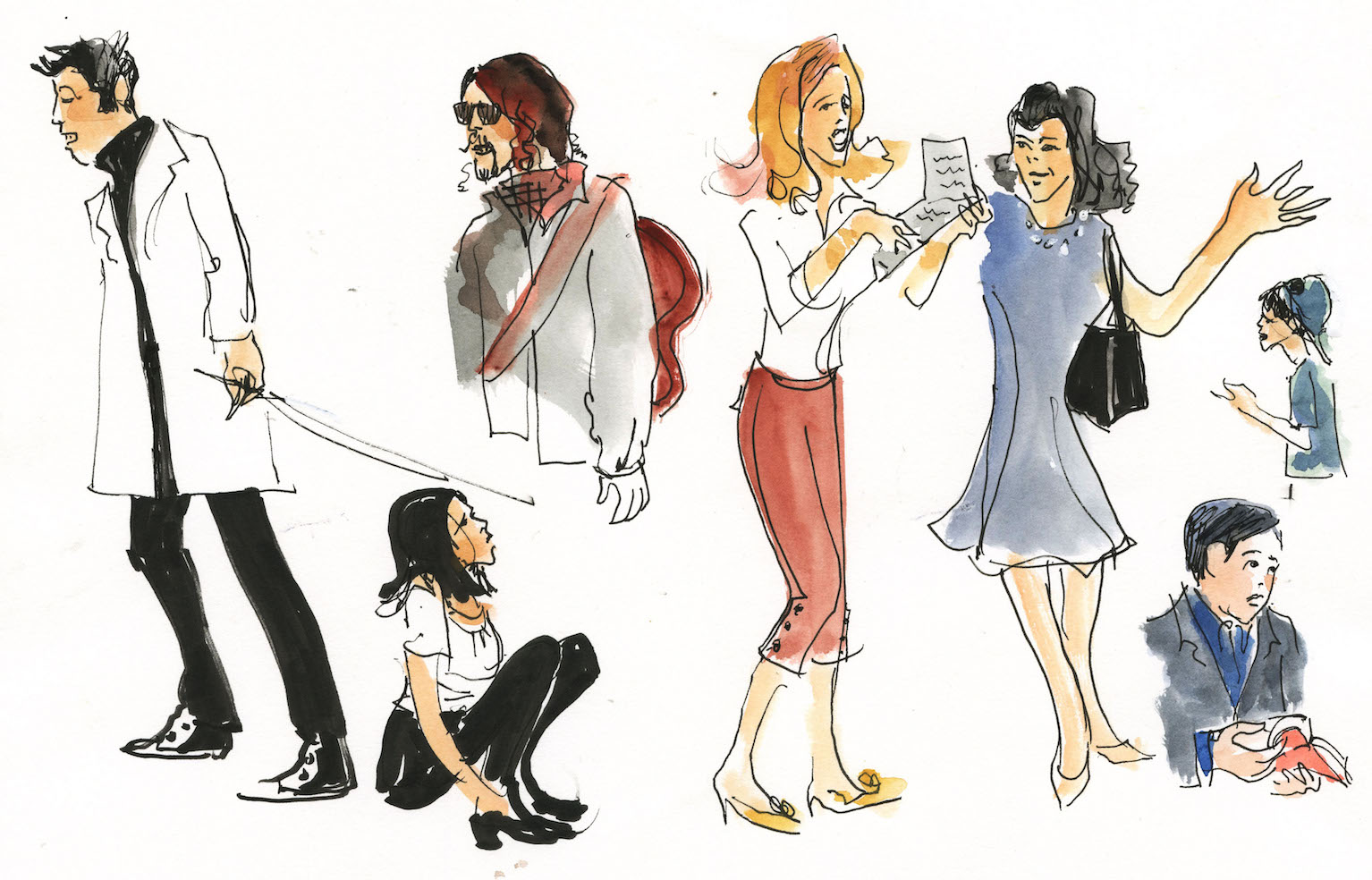
Spencer Scott, Alexandra Rose
By JK Clarke
Tennessee Williams’ very accomodating production notes in The Glass Menagerie—a play for which he coined the term “memory play”—encourages a freedom of convention, suggesting a departure from the realism (i.e. using real ice cubes on set) that defined contemporary theater at the time (early 1940s). “Memory takes a lot of poetic license. It omits some details; others are exaggerated,” Williams wrote. That’s likely the reason the play is not only widely and frequently produced, everywhere from high schools to Broadway, but why it differs in tone and interpretation from production to production, despite Williams’ occasionally specific stage directions. It’s in this spirit that RuthStage’s version of The Glass Menagerie—co-directed by Austin Pendleton and Peter Bloch and playing at the Wild Project through October 20—is presented.
Presented as a “chilling new take . . . [visualized] through the lens of a spooky dream,” this Menagerie is probably best described as gothic horror, which . . . isn’t actually overtly “scary.” But if you’re the sort of person who’d like to engage in primal scream therapy while discussing your mother, then this production might evoke the sort of terror that occasionally keeps you awake at night.
Told from the point of view of narrator/character Tom Wingfield (Matt De Rogartis), who is sharing the “memory” of his past, the largely autobiographical play tells the story of a claustrophobic household, run by domineering, delusional mother Amanda Wingfield (Ginger Grace). It’s St. Louis in the late 1930s, and the Wingfield family home is presided over by an enlarged portrait of Mr. Wingfield, who has flown the coop, but remains idolized by Amanda. She had her share of “gentlemen callers” in her youth (“seventeen!” she rhapsodizes, like a forgotten southern belle), but none come for Tom’s sister, Laura (Alexandra Rose), a fragile young woman with disabilities, both physical and possibly mental (not unlike Williams’ actual sister, a schizophrenic who eventually had a rather unsuccessful frontal lobotomy). In this production Amanda natters on endlessly, almost without affect; and Laura seems spacey, dreary and lost. Tom is slightly exasperated and somewhat desperate. With characters like these haunting the formative years of his life, one can understand why Williams drank himself to death later in life.

Matt De Rogatis, Ginger Grace, Alexandra Rose
One evening Tom brings home a co-worker from the shoe warehouse where both work., Jim O’Connor (an earnest Spencer Scott) engages enthusiastically with the family. By rather astonishing coincidence, he happens to be Laura’s high school crush. She bonds with him almost immediately and shares her passion for her collection of glass animal figurines. But Jim accidentally breaks first her unicorn, then her heart. Upon realizing the Wingfeld’s considered him a “gentleman caller,” the already engaged Jim—who naively believed he was merely being invited for dinner by a friend—flees the household, making his apologies and claiming he has to meet his fiancée. Not long after, Tom also flees, never to return.
Jessie Bonaventure’s appropriately shadowy, dimly lit set—both inviting and stifling and echoing with the liveliness of a nightclub beckoning from the alleyway—reflects Tom’s clouded, haunted memories. In offstage moments, Laura hovers in her Sunday best (costumes by Arlene’s Costumes) behind a transparent scrim, an ever present reminder of both her existence and Tom’s guilt. It’s clear that Tom has remained in the household out of love for his sister; but his mother, and the cramped home filled with gloomy Victorian furniture, drives him to escape almost nightly to “the movies” (though he’s probably out drinking).
While this iteration of The Glass Menagerie definitely evokes a dark, foreboding mood, it remains on an even keel. Much of the humor of Amanda’s dialog and mannerisms fails to make an appearance, nor does Tom’s rage. As an illustration of dysfunction in a mid-century American family the play makes its point. But it is that evenness that tranquilizes both the highs and lows from what is often an emotional and disturbing memory.
The Glass Menagerie. Through October 20 at The Wild Project (195 East 3rd Street, between Avenues A & B). Two hours, no intermission. www.theglassmenagerieplay.com
Photos: Chris Loupos



















